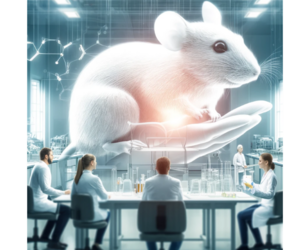Program Overview:
The UCR Animal Occupational Health Program (AOHP) is committed to safeguarding the health and safety of individuals involved in animal care and handling. The program’s primary objective is to identify, assess, manage, and mitigate potential health risks associated with laboratory animal research. Through comprehensive evaluations, the AOHP delivers customized recommendations to minimize the risk of illness and ensure the well-being of those working with laboratory animals.
Beginning in December 2024, UCR will adopt the Occupational Health Surveillance System (OHSS). This advanced, automated platform streamlines the process of conducting risk assessments and coordinating medical evaluations for employees and researchers exposed to animal biohazards and other workplace or laboratory hazards. The OHSS will replace the existing Medical History Questionnaire (MHQ) process, providing a more efficient, centralized, and effective approach to maintaining occupational health and safety.
-
Enrollment Process
Enrollment Process:
Participation in the UCR Animal Occupational Health Program (AOHP) is required for all individuals who have direct or incidental contact with laboratory animals. Enrollment begins with completing an online questionnaire through the Occupational Health Surveillance System (OHSS), which plays a vital role in identifying and addressing potential health risks.
Learn more about the Occupational Health Surveillance System (OHSS) (opens in a new tab)
-
Enrollment Criteria
Enrollment Criteria:
Enrollment in the UCR Animal Occupational Health Program is mandatory for:
- Individuals listed on Institutional Animal Care and Use Committee (IACUC) protocols as research personnel.
- Personnel engaged in animal-related research, testing, or educational activities.
- Those with direct or incidental exposure to laboratory animals, including casual exposure.
- Individuals entering Vivarium facilities for any purpose.
-
Enrollment Details for Short-Time Visitors
Enrollment Details for Short-Time Visitors:
Enrollment involves completing the AOHP questionnaire. Disclosure of personal health information is optional, and individuals may choose not to provide it if they wish.
-
Health Risks Awareness
Health Risks Awareness:
Working with laboratory animals exposes personnel to various health risks, including but not limited to:
- Zoonotic diseases (link opens in a new tab) are infectious agents transmissible between humans and animals.
- Allergies, particularly to rodents or other animals, are commonly used in laboratory settings.
- Post-Exposure Plans (link opens in a new tab) address incidents involving injuries such as bites, scratches, or other physical harm, as well as exposures resulting from handling hazardous materials associated with animal manipulation.
-
Ongoing Compliance
Ongoing Compliance:
Maintaining AOHP compliance is essential for a safe work environment. Participants must submit a new questionnaire under the following conditions:
- Prior to inclusion on an IACUC protocol.Before initial contact with laboratory animals.
- If there are changes in health status (e.g., worsening allergies, pregnancy).
- When exposure circumstances change (e.g., new animal models or hazards).
- Enrollment renewal is typically every three years, or sooner based on health status.
- For multiple IACUC protocols, renewal will be associated with a single Animal Use Protocol (AUP) if all hazards are listed.
-
Program Oversight
Program Oversight:
The UCR EH&S Occupational Health oversees the AOHP, managing the online Occupational Health Surveillance and Screening (OHSS) tool. They maintain agreements with local certified occupational health providers to offer a full range of medical surveillance services, including allergy assessments and respiratory clearances. Principal Investigators (PIs) are no longer responsible for program costs.
By following AOHP guidelines, UCR ensures a safe, healthy environment for all personnel involved in animal research. -
Immunization Requirement
Immunization Requirement:
Recommendation for Tetanus
For information about the tetanus vaccine or questions, reach out to ehsocchealth@ucr.edu.
Recommendation for Rabies Vaccine
Digital Vaccine Record
Your DVR is an electronic immunization record from the California Immunization Registry (CAIR), California’s official immunization record.
For DVR requests or questions, contact ehsocchealth@ucr.edu.
-
Reportable Diseases
Reportable Diseases
For any questions or assistance, feel free to contact us at ehsocchealth@ucr.edu.
